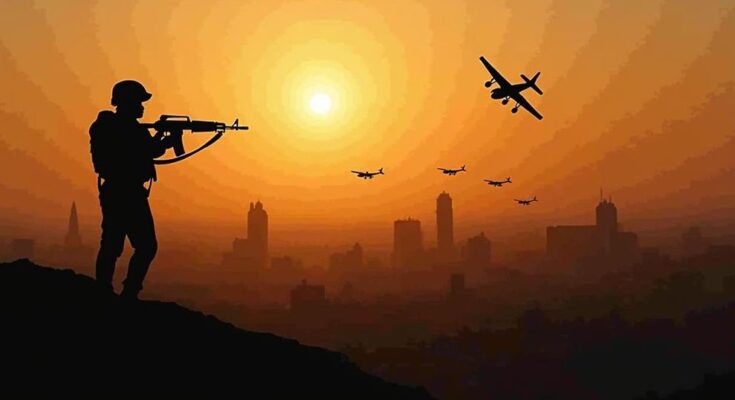Iran’s missile barrage against Israel has prompted retaliatory threats from Israeli authorities and support from the United States. Despite Iranian claims of military success, most missiles were intercepted. The conflict has led to significant casualties in Lebanon and drawn international condemnation, highlighting the geopolitical instability in the region.
Iran has escalated its military actions against Israel, launching over 180 ballistic missiles aimed at the nation, to which Israeli Prime Minister Benjamin Netanyahu has responded by asserting that Iran will “pay the price”. Despite the assault, Israel, with the assistance of the United States, successfully intercepted the majority of the missiles. Iranian officials claim that approximately 90 percent of their missiles hit intended military installations. U.S. President Joe Biden expressed strong support for Israel, emphasizing, “The attack appears to have been defeated and ineffective, and this is a testament to Israeli military capability and the U.S. military.” Iran defended its missile launch as a defensive measure against Israel’s operations, citing a recent series of targeted killings of militant leaders in Lebanon. Iranian Foreign Minister Abbas Araqchi indicated that Iran would cease its reprisals unless provoked further by Israeli actions. Simultaneously, Israel has intensified its operations in Lebanon, resulting in significant casualties—reports cite at least fifty-five dead and over 156 injured due to recent strikes, leading to a scheduled emergency meeting of the United Nations Security Council to address the deteriorating situation in the region. Amid these tensions, a military spokesperson indicated that Israel has commenced ground invasions into Lebanon while continuing its strikes across the Middle East. Former Israeli Prime Minister Naftali Bennett declared that Israel is presented with “its greatest opportunity in 50 years, to change the face of the Middle East,” urging the necessity to undermine Iran’s nuclear capabilities. Hamas has publicly lauded the Iranian missile strikes, referring to them as “heroic rockets,” framing them as retaliation for the deaths of Palestinians during Israeli bombardments. Furthermore, French President Emmanuel Macron condemned the Iranian assaults, highlighting the importance of maintaining Lebanon’s sovereignty in alignment with United Nations resolutions. Israel’s military conducted additional raids in southern Beirut, issuing evacuation warnings to residents immediately prior to the strikes. In response to the missile barrage, Israel, along with the United States, has vowed retaliation against Iran, with Netanyahu reiterating that they will face serious repercussions for their aggression. The situation remains highly volatile as both sides prepare for potential escalations.
The ongoing conflict between Iran and Israel has reached new heights following Iran’s recent missile attacks. Tensions have escalated due to longstanding hostilities, highlighted by Israel’s military actions against Iranian-affiliated militias and Iranian responses. The involvement of international actors, including the United States and Lebanon, complicates the situation further, raising concerns about regional stability and potential wider conflict.
The recent escalation of tensions between Iran and Israel, marked by missile strikes and retaliatory threats, signifies a worsening conflict in the Middle East. The regional implications of these military actions are profound, as they draw in major global powers and threaten to destabilize neighboring countries. Both nations appear poised for a potential cycle of retaliation, which necessitates urgent diplomatic intervention to avert further bloodshed.
Original Source: www.hindustantimes.com




